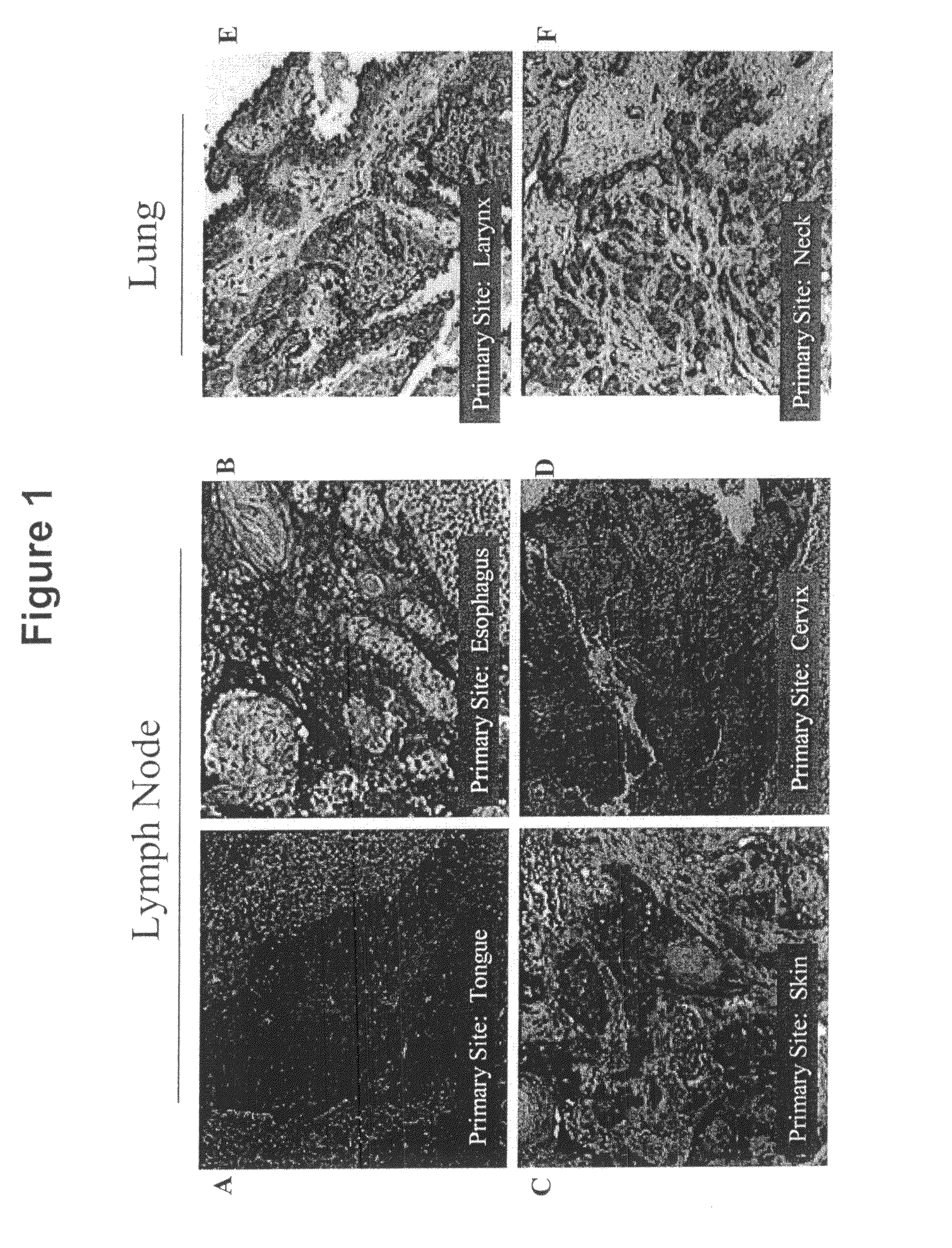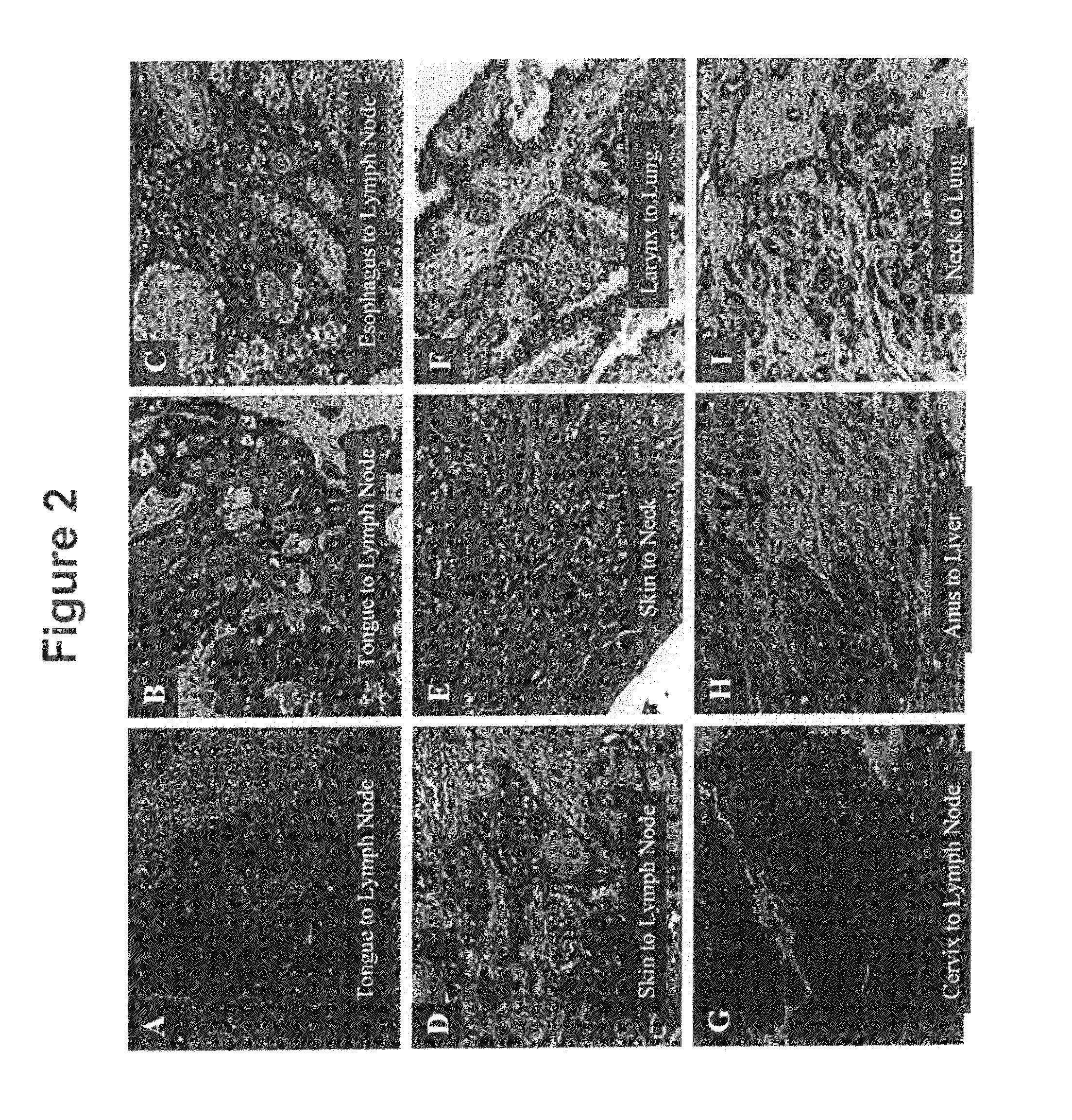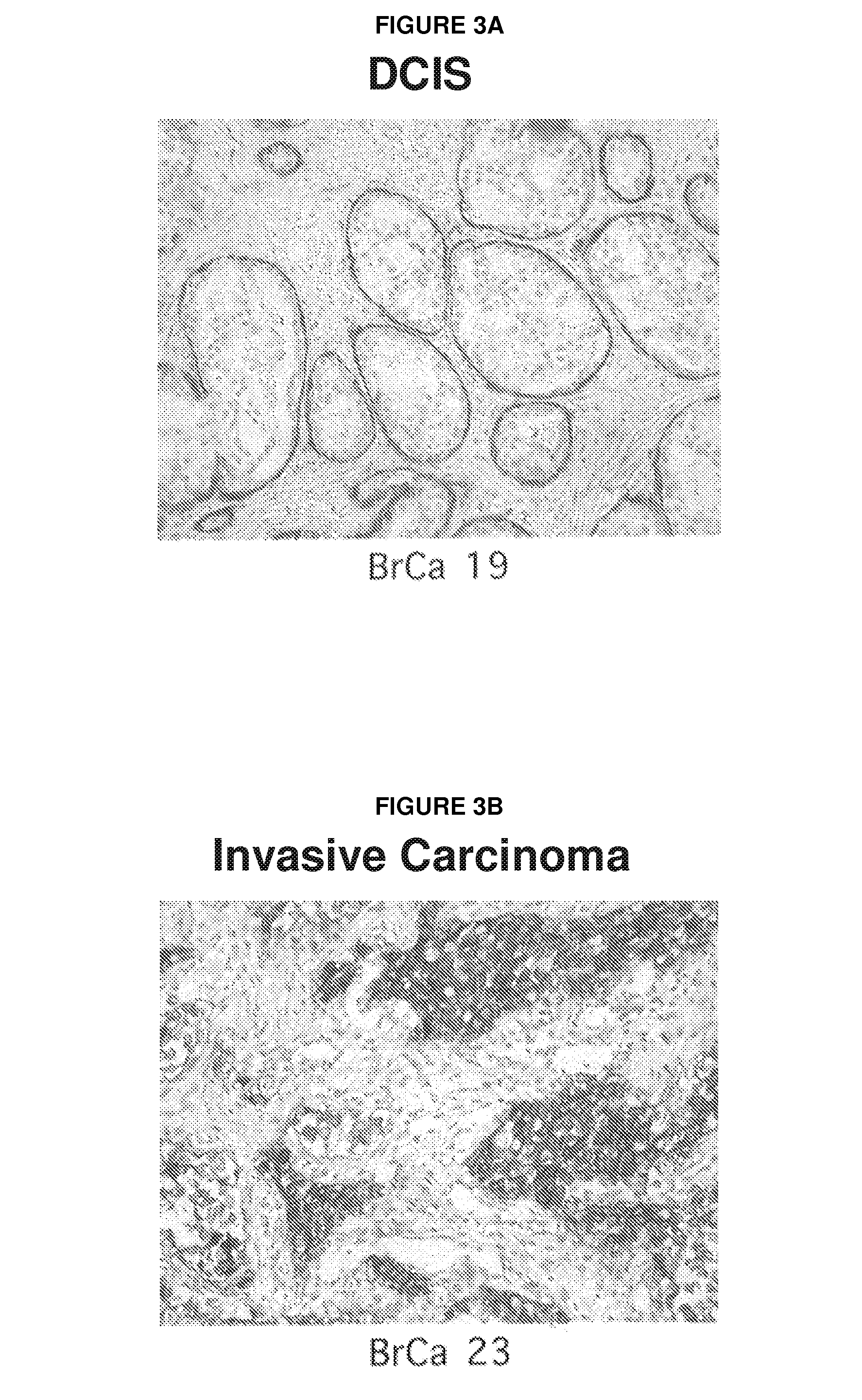Compositions and methods for inhibiting growth of smad4-deficient cancers
a technology of smad4 and tumor cells, applied in the field of cell biology, immunology and oncology, can solve the problems of poor patient survival prognosis and associated smad4 reduction in tumors, and achieve the effect of reducing the expression of smad4, increasing the expression of integrin v6 and the propensity of tumor cells
- Summary
- Abstract
- Description
- Claims
- Application Information
AI Technical Summary
Benefits of technology
Problems solved by technology
Method used
Image
Examples
example 1
αvβ6 is Highly Expressed in Metastases Relative to Primary Tumors
[0170]In the present experiments, we set out to study the expression of αvβ6 in a variety of cancers of epithelial origin and on metastatic lesions and to determine if function blocking αvβ6 mAbs could inhibit the growth of αvβ6 expressing tumors in vivo. We evaluated the in vitro and in vivo anti-tumor activity of our anti-human αvβ6 mAbs on a human pharyngeal carcinoma, Detroit62, and compared this to the in vivo anti-tumor activity of TGFβRII:Fc. Our data support a role in human cancer for αvβ6 and potential for therapeutic intervention with a function-blocking αvβ6 mAb.
A. Materials and Methods
[0171]For immunohistochemistry, tissue sections were deparaffinized in xylene and ethanol, rehydrated in distilled water, and then immersed in methanol containing 0.45% H2O. Tissues were incubated with pepsin (00-3009, Zymed, San Francisco, Calif.) and blocked with avidin and biotin (SP-2001; Vector Laboratories, Burlingame, C...
example 2
Inverse Relationship Between smad4 Gene Expression and Integrin Expression in Primary Human Pancreatic Tumors
[0177]To examine the relationship between smad4 expression and αvβ6 expression in primary tumor cells, sections of human primary pancreatic tumors were obtained and stained via immunohistochemistry for SMAD4 protein and for αvβ6. Fourteen tumor samples from different patients were examined. Results are shown in FIGS. 7-13.
[0178]Of the 14 tumor samples, 7 (50%) were found to have clearly αvβ6+ tumor areas, while 3 of these showed heterogeneity in expression (i.e., some sections of the tumor that were αvβ6+, other sections in the same tumor that were αvβ6−; FIGS. 8-9). Seven of the 14 tumors were found to be αvβ6−negative.
[0179]In the 11 tumors (excluding the 3 that were heterogeneous in αvβ6 expression), the following results were observed FIGS. 7-10, 13:
[0180](A) four were αvβ6+, and of these, three were smad4− and one was smad4+; and
[0181](B) seven were αvβ6−, and all seven ...
example 3
Expression of αvβ6 and smad4 on Pancreatic Cancer Cell Lines
[0186]Expression of αvβ6 and smad4 were determined for a panel of pancreatic cell lines. The results are summarized in FIG. 14.
[0187]In a preliminary analyses of αvβ6 and smad4 expression on primary pancreatic ductal adenocarcinomas (PDACs), three sample sets were examined. In the first set, 10 PDAC samples were tested by BioCat array, and all 10 (100%) were found to express αvβ6. In the second set, 14 pancreatic adenocarcinoma samples were tested by Cytomix assay, and 7 (50%) of these were αvβ6 positive. In the third set, 11 PDAC samples were tested by a Folio array (FIG. 15), and of these 10 (91%) were αvβ6 positive.
[0188]For the second and third sample sets, smad4 expression was also assayed. Fifteen lines were found to be αvβ6 positive, and 11 of the lines were smad4 positive. Twelve lines were αvβ6+ / smad4−; 8 lines were αvβ6− / smad4+; and 3 lines were αvβ6+ / smad4+. Two of the lines were heterogeneous and had areas that ...
PUM
| Property | Measurement | Unit |
|---|---|---|
| temperatures | aaaaa | aaaaa |
| temperatures | aaaaa | aaaaa |
| time | aaaaa | aaaaa |
Abstract
Description
Claims
Application Information
 Login to View More
Login to View More - R&D
- Intellectual Property
- Life Sciences
- Materials
- Tech Scout
- Unparalleled Data Quality
- Higher Quality Content
- 60% Fewer Hallucinations
Browse by: Latest US Patents, China's latest patents, Technical Efficacy Thesaurus, Application Domain, Technology Topic, Popular Technical Reports.
© 2025 PatSnap. All rights reserved.Legal|Privacy policy|Modern Slavery Act Transparency Statement|Sitemap|About US| Contact US: help@patsnap.com



